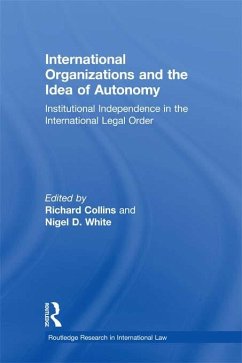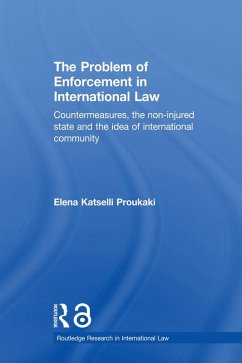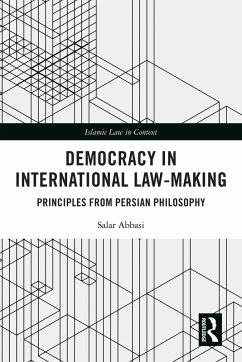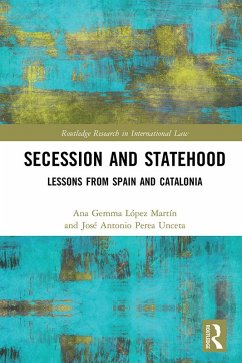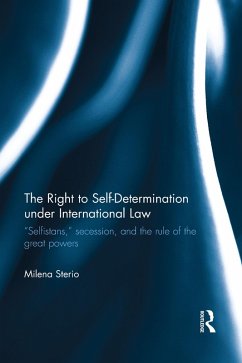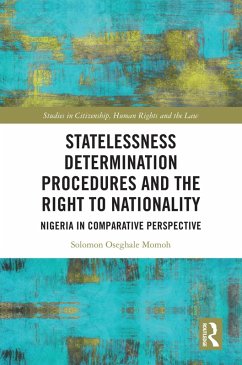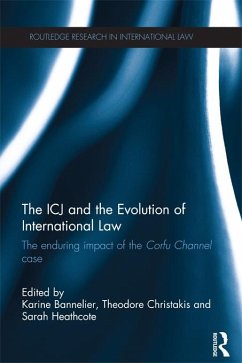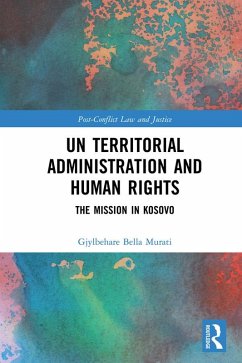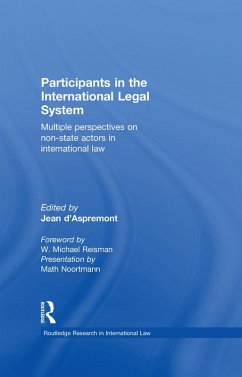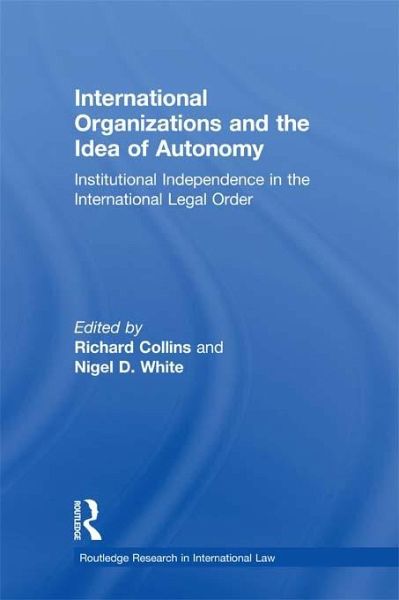
International Organizations and the Idea of Autonomy (eBook, ePUB)
Institutional Independence in the International Legal Order
Redaktion: Collins, Richard; White, Nigel D.
Versandkostenfrei!
Sofort per Download lieferbar
55,95 €
inkl. MwSt.
Weitere Ausgaben:

PAYBACK Punkte
28 °P sammeln!
International Organizations and the Idea of Autonomy is an exploratory text looking at the idea of intergovernmental organizations as autonomous international actors. In the context of concerns over the accountability of powerful international actors exercising increasing levels of legal and political authority, in areas as diverse as education, health, financial markets and international security, the book comes at a crucial time. Including contributions from leading scholars in the fields of international law, politics and governance, it addresses themes of institutional autonomy in internat...
International Organizations and the Idea of Autonomy is an exploratory text looking at the idea of intergovernmental organizations as autonomous international actors. In the context of concerns over the accountability of powerful international actors exercising increasing levels of legal and political authority, in areas as diverse as education, health, financial markets and international security, the book comes at a crucial time. Including contributions from leading scholars in the fields of international law, politics and governance, it addresses themes of institutional autonomy in international law and governance from a range of theoretical and subject-specific contexts. The collection looks internally at aspects of the institutional law of international organizations and the workings of specific regimes and institutions, as well as externally at the proliferation of autonomous organizations in the international legal order as a whole. Although primarily a legal text, the book takes a broad, thematic and inter-disciplinary approach. In this respect, International Organizations and the Idea of Autonomy offers an excellent resource for both practitioners and students undertaking courses of advanced study in international law, the law of international organizations, global governance, as well as aspects of international relations and organization.
Dieser Download kann aus rechtlichen Gründen nur mit Rechnungsadresse in A, B, BG, CY, CZ, D, DK, EW, E, FIN, F, GR, HR, H, IRL, I, LT, L, LR, M, NL, PL, P, R, S, SLO, SK ausgeliefert werden.




